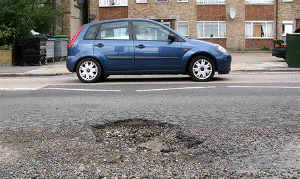What is the most popular car in Hawaii?
What is the most popular car in Hawaii?
Toyota 4Runner Toyota, along with Ford, is the top automobile make in Hawaii. Aug 19, 2021
Is GEICO cheaper than the general?
Geico beats The General across all categories analyzed by WalletHub: cost, types of insurance available, discounts offered, customer reviews, and NAIC rating.
Does GEICO lower rates after 6 months?
Your Geico auto insurance policy could go up after six months. If you’ve managed to get through your policy without making a claim, you could be eligible for an auto insurance discount. If you keep your Geico auto insurance for three years or more, you could get a loyalty discount. Jan 26, 2022
What is the lowest insurance group?
insurance group 1 Typically, the lower a car’s insurance group number, the cheaper it will be to insure. This means cars in insurance group 1 are likely to be the cheapest cars to insure, while those in group 50 will be the most expensive.
What is the biggest problem in Hawaii?
HOMELESSNESS – A MAJOR SOCIAL PROBLEM IN HAWAII In 2019, there were an estimated 9.4% of the state’s population living below poverty level. With regards to the number of people living on the street, there are an estimated 4,400 homeless individuals on O’ahu as of January 2020.
What is a good salary to live in Hawaii?
In order to live comfortably in Hawaii, some studies show that you’ll need a whopping salary of over $122,000.
What is the income limit for food stamps in Hawaii?
Who is eligible for this program? Household Size* Maximum Income Level (Per Year) 1 $20,318 2 $27,378 3 $34,437 4 $41,496 4 more rows
How much is lava insurance in Hawaii?
lava zone 3 insurance cost – Giuliano Bekor Volcano Insurance Rates: Volcano, HI homeowners insurance is approximately $753 to $1,030, about $62-$85/month.
How much does flood insurance cost in Hawaii?
The average cost of flood insurance is $958 per year, or $80 a month, through the National Flood Insurance Program (NFIP). … Flood insurance costs by state. State Hawaii Average annual cost $684 Average monthly cost $57 % households with flood insurance 21.64% 50 more columns • Sep 21, 2021
Does Hawaii require wind insurance?
Hurricane season in Hawaii begins on June 1 and runs through November. Hurricane insurance is a supplemental insurance to home insurance. It covers wind-related damage associated with hurricanes. Banks require homeowners to have hurricane insurance as part of their mortgage approval.
Is car insurance expensive in Hawaii?
Car insurance policies are relatively cheap in Hawaii. The average auto insurance cost in Hawaii is $1,079 per year — less than the US average by 24.4%. Your auto insurance costs are dictated by factors aside from state lines. Jan 5, 2022
Is Hawaii a pure comparative negligence state?
Hawaii follows the comparative negligence – 51% rule. This means that if an injured party was less than 51% at fault, they can still recover damages. If an injured party is found to be 51% or higher at fault, then they will not be able to recover any damages. Oct 6, 2010
Do you need insurance to register a car in Hawaii?
You cannot register a car without insurance in Hawaii. Proof of insurance is required at the time of registration.. … You have 30 days from the date of purchase to register a vehicle in the state of Hawaii, but you can’t drive the car without insurance. Jul 1, 2020
What is the minimum auto insurance coverage in Hawaii?
Here are the minimum Hawaii auto insurance coverage requirements for the legal operation of an automobile in the state: Bodily injury liability coverage: $20,000 per person and $40,000 per accident. Basic personal injury protection: $10,000. Property damage liability coverage: $10,000.
What does no-fault state mean?
What does a no-fault state mean? Drivers have insurance to cover their own injuries and damage rather than insuring to pay out to the other person. An easy way to remember what no-fault means is that regardless of who caused the incident, everyone is required to file a claim with their own insurance.





